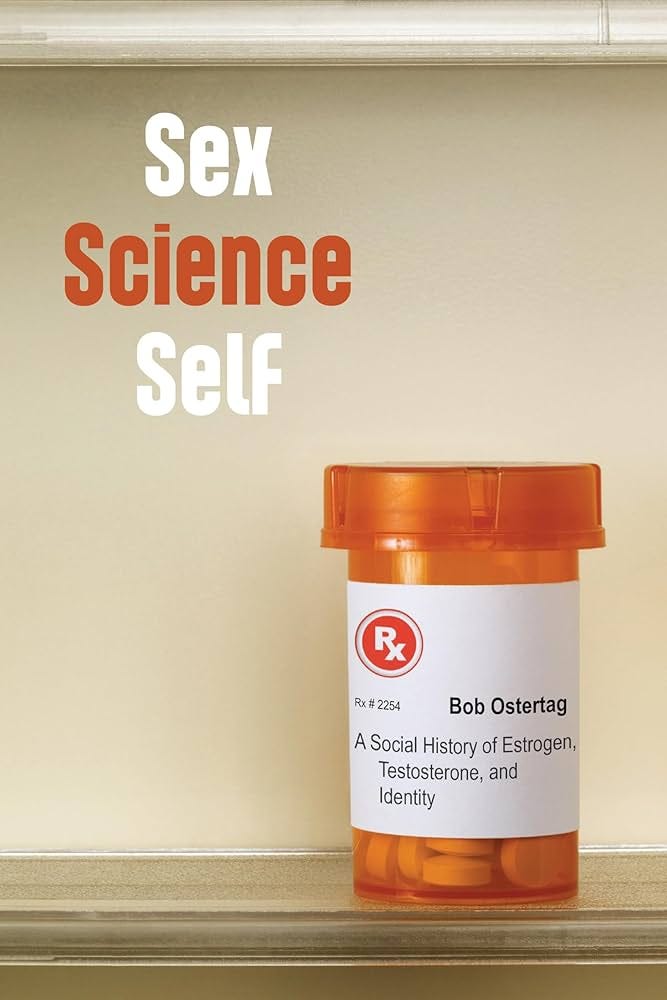Our next book-club read will be Bob Ostertag’s fascinating 2016 book, Sex Science Self:
In Sex Science Self, Bob Ostertag cautions against accepting and defending any technology uncritically—even, maybe even especially, a technology that has become integrally related to identity. Specifically, he examines the development of estrogen and testosterone as pharmaceuticals.
Ostertag situates this history alongside the story of an increasingly visible and political lesbian, gay, bisexual, and transgender population. He persuasively argues that scholarship on the development of sex hormone chemicals does not take into account LGBT history and activism, nor has work in LGBT history fully considered the scientific research that has long attempted to declare a chemical essence of gender. In combining these histories, Ostertag reveals the complex motivations behind hormone research over generations and expresses concern about the growing profits from estrogen and testosterone, which now are marketed with savvy ad campaigns to increase their use across multiple demographics.
Ostertag does not argue against the use of pharmaceutical hormones. Instead he points out that at a time when they are increasingly available, it is more important than ever to understand the history and current use of these powerful chemicals so that everyone—within the LGBT community and beyond—can make informed choices.
We also always (one year and counting! ;-)) read a book from across the aisle to commemorate Pride Month in June. Two of the options so far are Judith Butler’s new book, Who’s Afraid of Gender, and Shon Faye’s The Transgender Issue. If you have other suggestions to throw into the ring, please do!





I'd be up for Shon Faye's book. Apparently it's quite readable.
I haven't yet recovered from Jules Gill-Peterson last year, so I think Judith Butler might have me wailing and screaming and leaping off the nearest cliff.
"Ostertag situates this history alongside the story of an increasingly visible and political lesbian, gay, bisexual, and transgender population. He persuasively argues that scholarship on the development of sex hormone chemicals does not take into account LGBT history and activism, nor has work in LGBT history fully considered the scientific research that has long attempted to declare a chemical essence of gender. In combining these histories, Ostertag reveals the complex motivations behind hormone research over generations and expresses concern about the growing profits from estrogen and testosterone, which now are marketed with savvy ad campaigns to increase their use across multiple demographics."
It's disappointing that Ostertag is one of those lumpers who drags gay men into discussions where they do not belong through his careless use of the unhelpful and confusing term "LGBT."
Except insofar as the intriguing idea that exposure to hormones in utero might influence the person's sexual orientation is concerned, the topic of hormones is of little interest or relevance to gay men. It's the "T" people, the ones who suffer from what I call gender sickness, who are the market for gender pharmaceuticals. Yes, there's was an idea a while ago that men who suffer (?) from testosterone deficiency should take testosterone, but it did not distinguish between gay and straight men. In any case, it appears to have been debunked.